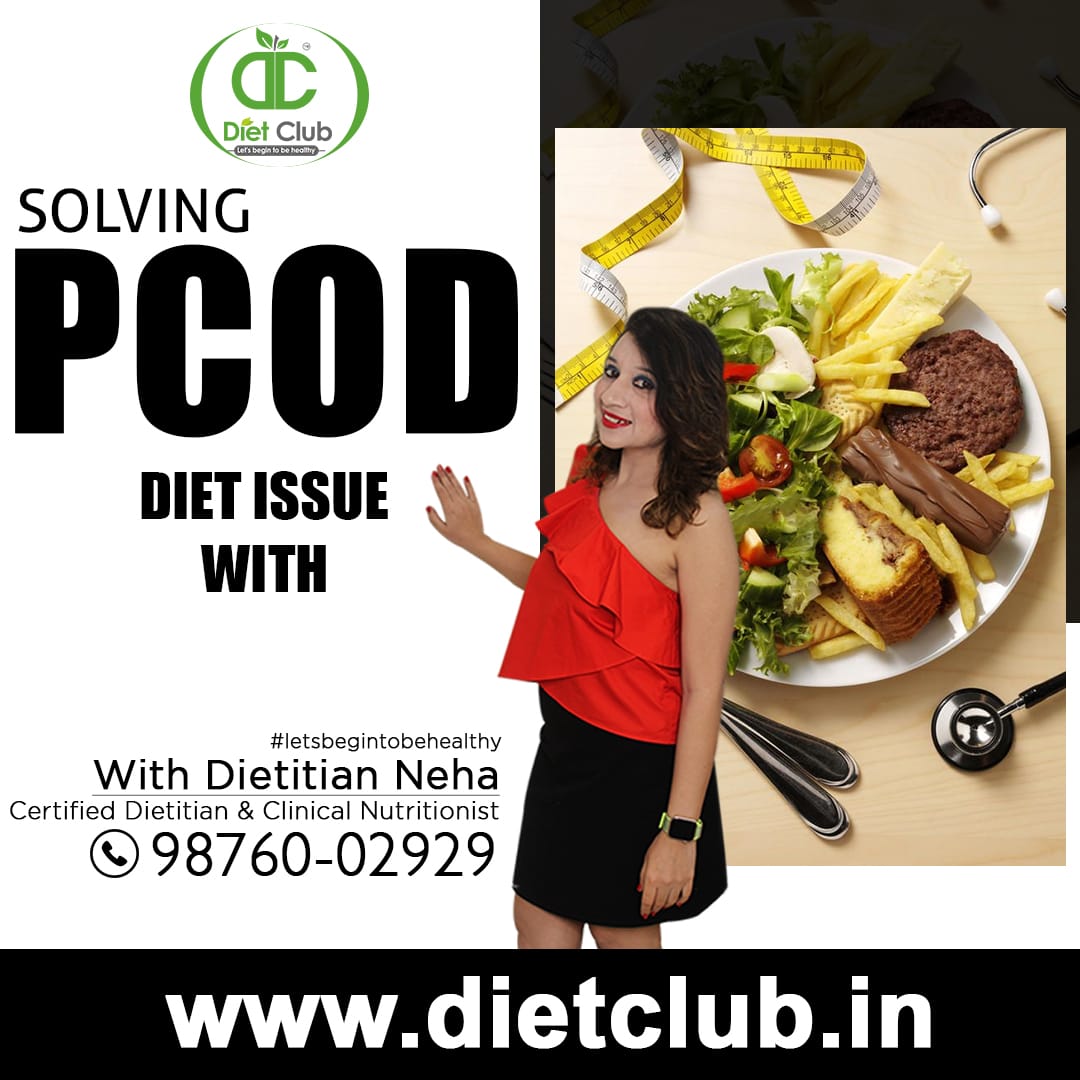Diet for PCOD
A condition known as PCOD (Poly Cystic Ovarian Disease) or PCOS (Poly Cystic Ovarian Syndrome) is characterised by several (or “poly”) cysts in the ovaries. Patients with PCOD experience aberrant hormone levels that lead to irregular menstruation, infertility, and some physical characteristics associated with masculinity.
The body’s various hormones work together harmoniously to maintain regular, efficient operation of all systems, including the reproductive system.

The ovaries produce an excessive amount of androgens, the male reproductive hormones, as a result of hormonal disturbances, which also prevent eggs from forming. Infertility may result from this excess of androgens and the absence of ovulation.
The primary cause of PCOD is the body’s abnormal hormonal functioning, hence it is obvious that treating this constitutional condition constitutionally will be necessary
Your PCOD issues can be controlled by a healthy diet. Dietitian Neha will assist you with your health issues.
Symptoms of PCOD
Typically, the patient exhibits the symptoms listed below:
- irregular ovulation
- Gaining weight and having trouble loosing it
- Dandruff, greasy skin, and acne
- excessive growth of hair on the chest, back, and face
- Hair Loss
- Miscarriage
- elevated blood pressure
- Diabetes
- High triglycerides
- mood swings or depression
- breathing issues while sleep
- body tags
- fertility issues, such as an egg not releasing (not ovulating)
- Multiple miscarriages
- Endometrial (uterine) cancer.
Having a larger-than-average or smaller-than-average baby, giving birth prematurely, or experiencing increased blood pressure during pregnancy or delivery
Treatment
Treatment for polycystic ovarian syndrome begins with an accurate diagnosis. PCOS treatment options include:
- Treatment for polycystic ovarian syndrome should include regular exercise, a nutritious diet, maintaining a healthy weight, and quitting smoking (PCOS).
- Additionally, you can take medication to regulate your hormones.
- The best course of action will depend on your symptoms and whether you hope to get pregnant.
Eat food lower in carbohydrates and sugar
eat more fiber-rich foods.
Consume foods with a lower glycemic index, such whole grains (jowar, bajra, whole wheat).
Saturated fat-free foods
Oat and wheat flakes
Lots of veggies, fresh fruit, fruit juices, legumes, and nuts
prefer protein-rich food
The importance of nutrition during PCOD (PCOS)
Vitamin B6: Keeps hormone levels balanced, which is essential for controlling PCOD.
For managing weight, vitamins B2, B3, B5, and B6 are especially helpful.
Vitamin B5 aids in weight loss by regulating the metabolism of fat.
For the regular generation of thyroid hormones, vitamin B6 together with vitamins B2 and B3 are required.
Get information on the precise nutrition’s diet to follow based on your body’s needs during PCOD by contacting Dietitian Neha, your nutrition specialist.
Your typical diet contains nutrition as well.
- Vitamins and a special diet are needed to control PCOD.
- B2: Soybeans, Brussels sprouts, wild rice, milk, yoghurt, eggs, and nuts
- Red meat, milk, eggs, beans, and green vegetables make up vitamin B3.
- B5: Legumes, beef, yoghurt, avocados, and eggs
- B6: Carrots, brown rice, lentils, salmon, tuna, sunflower seeds, and cheese.
For online counselling log in to our website www.dietclub.in.